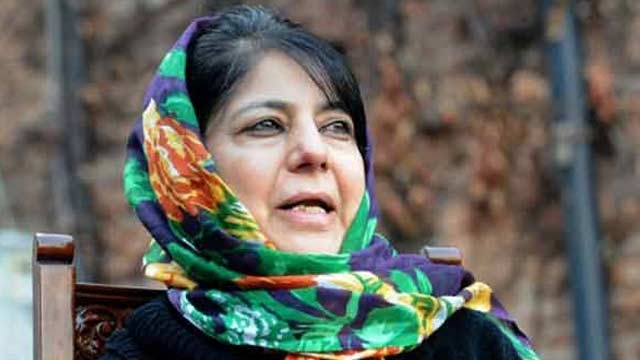BY HUMERA QADRI
Taqwâ, a purely Arabic word is derived from the root word Waqa‘ literally meaning: to arrange, to repair, to dread, to guard, to fear, to honor (Allah), to be pious Godly, keeping watch, caution, preservative, preventive, comfortable, brave and in Islamic terminology “to fear Allah”. According to the scientific meaning, it signifies a screen between two things. Thus, if the servant submits himself to Allah’s will by carrying out all obligatory duties with which he has been commanded and abstains from that which Allah has prohibited, then his obedient actions have placed a screen between himself and Allah’s punishment. Taqwâ and its derivatives occur 250 times in the Qur’ân and essentially signifies: God-consciousness, God-fearing and in extension Piety. So Taqwâ in its original meaning is Piety, Right conduct, Righteousness, Virtue, Faith, Goodness, Justice, Fairness, Equity, Guidance, Sincerity, Truthfulness, Perseverance, Purity, Reliance on Allah, Obedience to Allah, Fulfillment of Promises and Generosity, Measurement of Imân and overall, the loyalty towards Allah.
Siyâm or Fasting during the month of Ramadân is Third Pillar of Islam. Muslims wait all year long for the arrival of this month of Ramadân. Ramadân is the month of patience. A person who is ready to be patient, not to eat while he is hungry, not to drink while he is thirsty, not to lean to his lusts. To train yourself to abstain from the essentials of life is not an easy act. It needs a strong personality to dictate self-control, self-discipline and self-restraint. Fasting develops self-control and helps Muslims overcome selfishness, greed, laziness and other faults. It is an annual training program to refresh us for carrying out our duties towards Allah. Thus, a person who can restrain himself, for the love and pleasure of Allah, deserves a reward from the Creator Himself. The hardship of fasting brings the glad tidings that the fasting undertaken for the sole purpose of pleasing Allah is sure to be accepted by the Most Merciful Lord”. Fast in which the spirit of Fasting is not observed is only an exercise in starvation but not really a Fast at all. The prophet (SAW) said “Whosoever does not give up telling lies, or acting in a false manner, Allah has no need for his giving up his eating or drinking.”
Allah ordains people in the following words, “O you who believe! Fasting is prescribed to you As it was prescribed To those before you, That ye may (learn) Self –restraint (Fasting) for a fixed Number of days; But if any of you is ill, Or on a journey, The prescribed number (Should be made up) From days later, For those who can do it (With hardship), is a ransom, The feeding of one That is indigent. But he that will give More, of his own free will It is better for him. And it is better for you That ye fast If ye only knew Islam proceeded step by step and by degrees in the imposition of most of its obligatory duties and Fasting was no exception.(Surah Baqarah;Verse no:183-184).Verse:183 was revealed in the second year of Hijrah before Ghuzwa of Badr. The subsequent verse which superseded it was revealed a year later but was inserted here because it dealt with the same matter.
In our life journey we face innumerable temptations and we must shun them and stick scrupulously to the path of righteousness and truth constitutes Taqwâ, inturn generated and attained through knowledge which is coupled with Imân (true faith). If we do not possess knowledge, we cannot really show piety. To obey the commands of Allah and to carry out His laws constitutes this particular tenet of Islâm. Fasting has been made obligatory on us. We are made conscious about the needs and deprivation of those who are more in need than ourselves. This heightening of one’s sense of sacrifice is the opposite of selfishness and of a desire to exploit or oppress someone for the sake of gain. Allah does not need our hunger, but fasting helps us to develop and refine our reflex about right and wrong, our sense of love and gratitude. Ramadan teaches us how to control our animal passions, how to bring them under discipline. The end result is manifestation of a human personality that loves Allah and loves His creation that fears none but Allah, that draws all its strength from Allah and Allah alone.
Ramadân is also the month of the Qur’ânic revelation. The moral and spiritual climate of Ramadân helps the flourishing of the Qur’ânic message which is the ambiance of goodness, humility, righteousness, love for good and aversion for evil.
Besides the feeling of hunger and thirst, fasting teaches us to control the love of comfort. It helps us to keep our carnal desires within control. Siyâm builds and nourishes the soul of the fasting Muslim. The fasting person enriches his fasting by the remembrance of Allah, the recitation of the Qur’ân, Tarâwih, Zakâh, Sadaqah (charity), and by refraining from sins and obscenity. The fasting person lowers his gaze and suppresses his desires. He guards his tongue from vain talk and obscenities. He guards his hands and legs from the prohibitions of Allah. He employs his hands and legs in the good and various deeds. Siyâm is not the mere refraining from eating and drinking, it is also refraining from vanity and obscenity. Siyâm builds a strong will and nourishes the truthful zeal in the soul. This is achieved when the fasting person struggles to work for his livelihood and resists his desires and temptations. Siyâm builds the strength to bear difficulties and hardship and instills the character of perseverance. The fasting person by depriving himself from food and drink, and other necessities of life becomes capable of controlling his desires, capricious whims, and temptations. The purpose of fasting is to enable a Muslim to control his passions, so that he becomes a person of good deeds and intentions. If one fasts from dawn to sunset, but continues to be abusive and tell lies, swears wrongly under oath and indulges in other wrongful acts, then the objective of fasting has not been achieved. Anger, a common human weakness, can also be brought under control by fasting. A Muslim should keep away from all bad actions during his fast. He should not lie, break a promise or do any deceitful act. Fasting in Ramadân helps one to develop good habits and suppress or eliminate bad habits such as smoking, drinking coffee, tea, etc. One can avoid or cut down on excessive consumption of food.
A fasting person has feelings of sympathy for the poor. The sense of compassion springs from the feeling of pain. Fasting is a practical means to develop compassion for other people’s sufferings. The Prophet Muhammad (SAW) himself was very generous during Ramadân. Fasting elevates the person from the material life to a higher spiritual life by worshiping Allah day and night without tiredness.
In Qur’ân Allah says “He created mankind from a single pair of male and female and made him into nations and tribes, to know each other. And the most honored in the sight of Allah is he Who is the most righteous and Allah has full knowledge and is well-acquainted with all things.” (Surah Hujurât;Verse no:13). It can be understood from the above justified Verse, that Taqwâ of people proves to be the backbone on which the infrastructure of a civilization rests upon. It qualifies and determines the intensity of one’s Imân. The survival of most of the prophetic Ummam(Sing.Ummah) is due to Taqwâ despite being imposed to the natural calamities and tornadoes. Taqwâ is the milestone, universal fact and truth in nature to be followed for the favours of Allah in this world and HereAfter. In Surah (An-Nisa;Verse:13), Allah says, “Verily We have directed the people of Book before you (Muslims) to fear Allah.” This rather explains that Muslims were guided to follow the path of Allah.Mankind possesses emotions the highest flavour of which is love for Allah Who exalted him(man) to the position even higher than angels. “A man should submit his will to the Will of Allah and be doer of good only and has grasped the firmest hand-hold.”(Al-Qur’ân;Surah Luqmân:22).
The best example of the best socities the world could ever produced is Khayr al-Karûn (The society established under Prophet Muhammad (SAW),about which Prophet himself has said, “Khayrul Qarûni Qarni Thuma-al-lazîna yalûnahum Thuma-al-lazîna yalûnahum”, which means, “The best period is mine and then period of Ashâb(his companions) and then the period of tâb‘în and Tabatâba‘în (followers of Suhâba).(Al-Bukhârî).This society proves to be the model for the future societies and rather observed Islamic sway whose social ethos was completely based on Taqwâ.All the four orthodox Khulafah would consult one another before committing any judgment. To Hadrat ‘Umar (Rad.Anhu), “Taqwâ is to protect the sanctity of faith and integrity from being polluted by the foul and filthy elements. Righteousness if practiced is the only means to attain the highest position of Allah’s proximity.” To Hadrat ‘Alî (Rad.Anhu), “Taqwâ is the spiritual faculty which appears as a result of continued exercise and practice. A man with Taqwâ is like an expert horseman riding a well trained horse and who with complete mastery and control drives his tractable steed in the direction of his choice. For indeed today Taqwâ is a shelf and a safeguard, and tomorrow (i.e.HereAfter) it shall be the path to Paradise.”
Taqwâ has no bearance on formalities but in faith and true virtues of practical deeds of mankind in accordance with nature and attributes of Allah. Therefore it represents the bon between Allah and man. Moreover, man should not break away from unity instead he should glorify it by carrying out the duties prescribed by Allah ,thoroughly and well refrain strictly from anything prohibited by Him or in anything dubious. Taqwâ is the tendency to please Allah which surpasses all other wishes and desires. That is the fact why Imâm Husayn (Alaihisalam) and his companions sacrificed everything for the sake and survival of Islamic creed and taught the world lesson to please Allah and to save Islamic Principles. In fact these Shuhada recorded epics of heroism unlike away others in the entire history of human race. Their names and deeds of heroism are recorded on the pages of history with golden letters for all generations to come. The great incident of Karbala is not the tragedy but the institution where one can learn about any discipline of life as love, devotion, respect, determination, and all the human virtues all summed up in Karbala.
All the above mentioned consequences of Taqwâ would become the practical aspect of the unity of Muslims and will reduce the idea of nationality and geographical identity. Allah is pleased with his servants and answers the Dua of the fasting person, when he supplicates to Him.During the month of Ramadan, one should visit and offer prayers more frequently in the local mosques. Ramadan is a special time for visiting friends and family and sharing meals with the less fortunate.
The Prophet (SAW) said, “O people! The month of Ramadân has come with His mercy, blessing and forgiveness. Allah has decreed this month the best of all months. Its days are the best among days, its night’s best among nights, and its hours best among hours. This is a month in which you have been invited by Him to fast and pray.Allah has honored you in it. Every breath you take in this month has the reward of praise of Allah. Your sleeps in worship, your good deeds are accepted and your invocations answered.” (Al-Bukhâri)
Therefore we must invoke our Lord in earnest, with hearts that are free from sin and evil, and pray that Allah helps us to fast, and recite the Qur’ân, to give alms to the poor and the needy, to pay respect to our elders, have sympathy for our youngsters and be kind toward our relatives and kinsfolk which rather signifies the Haqûq al-Nâs (Rights of People) which ultimately guarantee Haqûq al-‘Ibâd (Rights of Allah) .
Anyone who cultivates good manners in this month will walk over the bridge leading to paradise on the day when feet will tend to slip. Anyone who treats his kinsfolk well in it, Allah will bestow His mercy on him on the Day of Judgment
while anyone who mistreats his kinsfolk, Allah will keep him away from His mercy. Whoever recites a verse of the Qur’ân in this month, his reward will be that of reciting the whole Qur’ân in other months. The gates of paradise remain open in this month: we must pray to our Lord that they may not be closed for us. The gates of hell are closed during this month: pray that they may never be opened for us. Satan has been handcuffed: lets invoke our Lord not to let him dominate us.
Overall, May Allah make us become kinder people, better neighbors and set good examples of the teachings of Islam which we present. ThumaAmîn!


















Leave a Reply